Books read in 2022
For me, 2022 was a year marked by frustration, disappointment and some really dark thoughts. However, looking back I also remember some very important achievements. It all evens out in the end.
Thankfully, some of the books I read this year offered solace, hope, guidance and inspiration.
Anyway, here’s this year’s list:
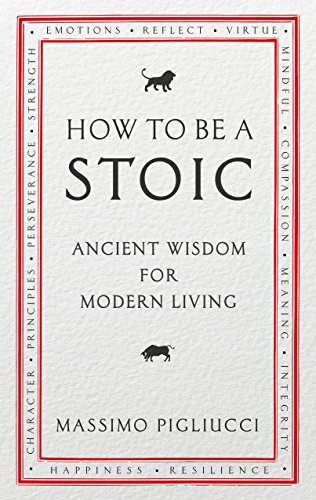
01 - How to be a stoic: Using ancient philosophy to live a modern life, by Massimo Pigliucci.
I’ve had an interest in philosophy from some time ago, but I’ve never had a chance to have “proper” training in it. I read this book in hope of starting to learn more seriously about these topics and it proved to be an interesting reading.
As I understand it, stoicism is a way to see life and identify which situations deserve to be worried about and which are not. The dichotomy of control says that we must understand the difference between what we can influence and what we cannot. We must strive to change our life for the better, but while being aware that some things are beyond our influence, so we just need to be satisfied with our best efforts.
The book also talks about how to face anger, frustration, despair, anxiety and other difficulties in life, including how we should face, without fear, our inevitable death.
I enjoyed this book and found myself very interested in this topic. Enough to search for more books about it. Thankfully I already got recommendations from a bona fide philosopher, so I will try to add them to my future readings.
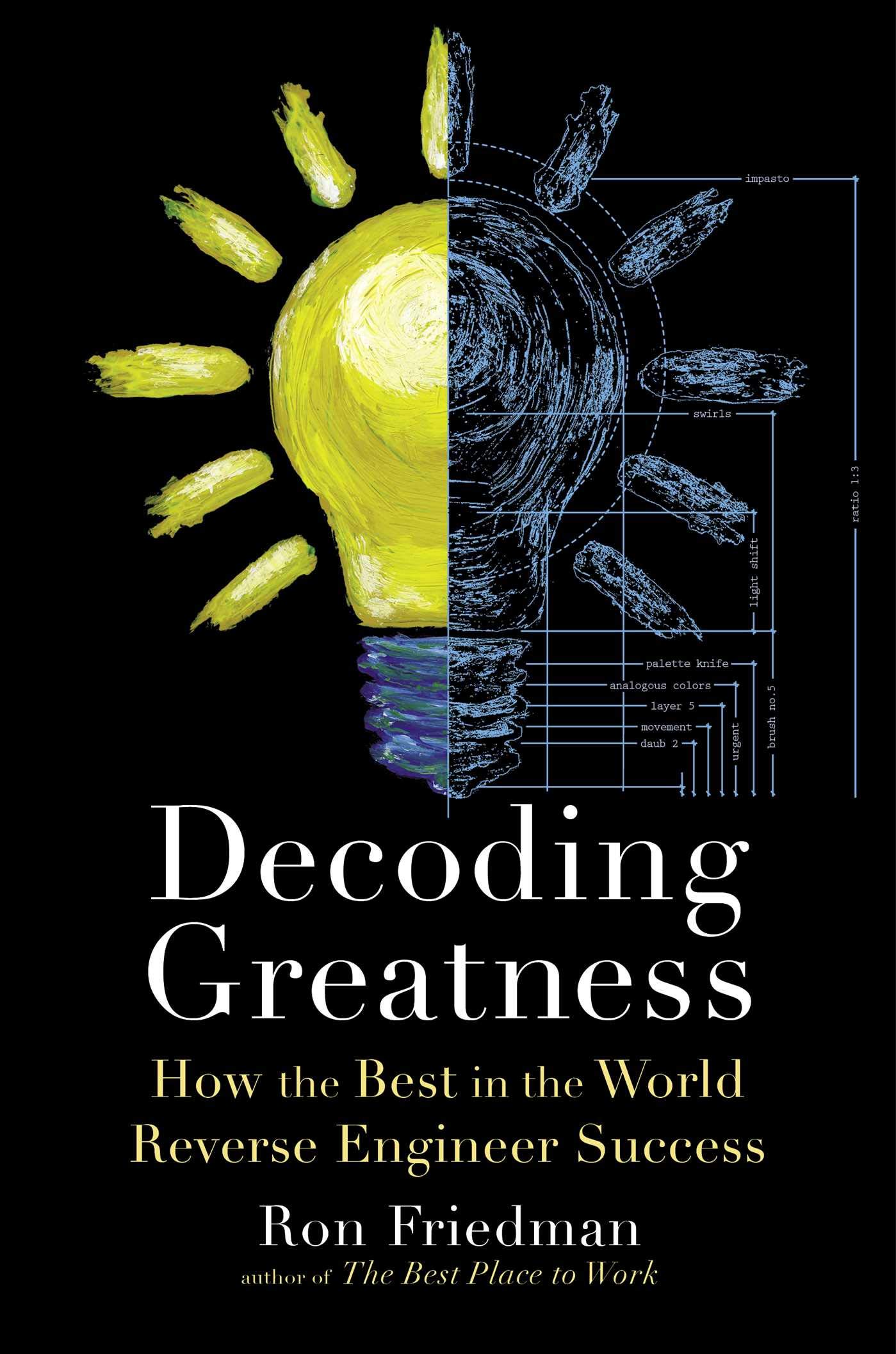
02 - Decoding greatness: How the best in the world reverse engineer success, by Ron Friedman.
This book was surprisingly good. It starts discussing reverse engineering, where the point is not to copy mindlessly, but to analyze why great ideas have worked and extract the core concepts and intentions behind their success in order to apply those underlying concepts in different products or ideas.
For example, many could attempt to copy products like the Macintosh or Windows, but the actual idea behind those products was simplicity. They allowed common people to use computers without learning how to write commands or studying for years in a school.
Artists have known about the benefits of this paradigm for a long time. Painters, musicians and sculptors have learned and grown their repertoire from reproducing the works of the great masters, not just for the sake of practice and homage, but to achieve a better understanding of the techniques and methods that made the original pieces so appealing. Chefs have learned to identify ingredients in popular recipes not just to add them to other recipes, but to evoke feelings like nostalgia and familiarity, through taste and aroma, in completely new dishes.
Special attention is given to the importance of practice and how to deeply analyze areas of opportunities in order to find the details that, once fixed, can transform weaknesses into strengths. This is specially important and useful for athletes.
The last part of the book centers around how to improve by gathering useful advice and feedback from experts as well as using the techniques that great athletes use to envision their goals. Probably the most important part is not asking for feedback, but asking for advice since most people do not provide honest feedback anyway. It also explain why so many experts are such bad teachers, and how to ask questions that matter.
Overall, I would recommend this book to anybody who has any kind of personal or professional goals.
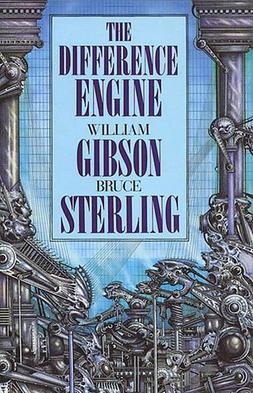
03 - The difference engine, by William Gibson and Bruce Sterling.
May I never be so unscientific as to close my eyes to honest truth.
This book starts very slowly and the first part is basically useless for the story. However, the book slowly starts to get more interesting.
Nineteenth century London is very different here. The analytical engine of Charles Babbage is not ignored and it completely changes the world by ushering an early information age.
Accompanied by this, the position on society is based on merit, with great scientists being awarded nobility titles. Darwin is a Lord, and Ada Lovelace is basically a rockstar nicknamed “The Queen of Engines”. Non-secular thinking is heavily frowned upon. With all these advances in computation, other areas are improved as a side effect. Cinema and audio recording appear much earlier, for example.
There are, as always, people who refuse to let the future happen, who revolt against the government and the reliance on “engines”. This revolt takes a great deal of the story.
I must admit that this alternative history seems extremely appealing to somebody like me, but it does show some important drawbacks. The steam-powered engines are much bigger than our current electronic computers, and they face the challenge of not being scalable beyond a certain point due to more restrictive physical factors. With all the advantages that this fictional era presents, maybe Babbage was indeed too ahead of its time and we got the better timeline. We will never know, but this book offers a fascinating comparative.
I cannot think of two better authors for this story. Both Gibson and Sterling were meant to write together due to their background and I am genuinely surprised that they didn’t collaborate more often. However, I am also surprised in the boring result of the collaboration. There are conversations that never get anywhere, and mysterious characters that appear to be important are never mentioned again. Many times I had the sensation that I started reading the third or fourth book in a series, because it feels like I am missing entire chapters of the story in random places. I still want to trust both Gibson and Sterling, so I want to blame my evidently shallow understanding of British history, that appears too crucial to enjoy this book properly.
I really wish this book centered around the exciting “proto information age” (just as the title suggested) instead of being a commentary about the political landscape of this alternate nineteenth century London. It really feels like a wasted opportunity.
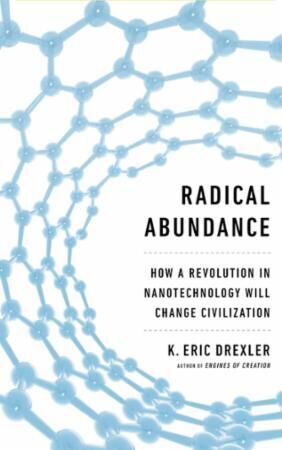
04 - Radical abundance: How a revolution in nanotechnology will change civilization, by K. Eric Drexler.
The father of nanotechnology describes a marvelous future in which relatively expensive objects like computers are built by revolutionary techniques and produced as cheaply as a piece of cardboard. The main idea is Atomically Precise Manufacturing, which would drastically change the landscape of factories to be much smaller, efficient, ecological and economical.
Due to this change in manufacturing, there would be profound changes in the global logistic, distribution, market and economy. Drexler compares this coming change to the violent change that the communications industry suffered thanks to the Internet. He even ensures this will be the fourth revolution in our civilization, after the agricultural, industrial and information revolutions.
This is quite a fascinating idea which would make 3D printing seem archaic in comparison. The first printing press required manual labor to order blocks of letters and then print their impressions on paper, while current paper printers assemble individual pixels in order to print a letter or a picture. In similar fashion, APM machines would assemble atoms and chemical compounds in order to produce objects rather than factories using specialized machines to assemble finished products from pre-processed materials.
APM could be used to easily produce materials much stronger than steel, but with a tiny fraction of its weight and price. Imagine the possibilities this would open to industries like commercial aviation, car manufacturing, electronics, energy, etc. In fact, Drexler does mention a future in which airplanes and cars are much safer, but also lighter, so they consume less energy and produce less pollution. Added to this, there would be computer processors in the gigahertz range that only consume a few Watts of electricity. That alone is much more than a revolution in the current key industry of computing.
It is not a secret that current manufacturing processes are slow, expensive, dirty and complicated. By directly transforming raw materials into finished products, the costs nosedive to almost zero. APM would also mean factories where humans are not required, which means less problems, and more importantly, less dangers.
The book even heralds the coming of the Open Source paradigm into the non-software world thanks to APM. This is the sole reason why this future looks so bright to me. It is about time we start sharing physical objects with the same abandon and selflessness as we do open source code. Only then we would have people that thrives together, not against each other.
If only half of what Drexler says becomes real, we really could be facing the solution to most of the problems of the human civilization. This all sounds too good to be true, but I am hoping it becomes real as soon as possible. The world desperately needs a more elegant and clean way to produce products and tools, and everything that Drexler promises seems to make sense from a physical standpoint. This could really mean the solution to scarcity, poverty, climate change and financial inequality. For that reason, I would urge everybody to read this book and prepare for the good and bad things to come, because the world might get even worse, or it might get much better, but it will definitely be very different.
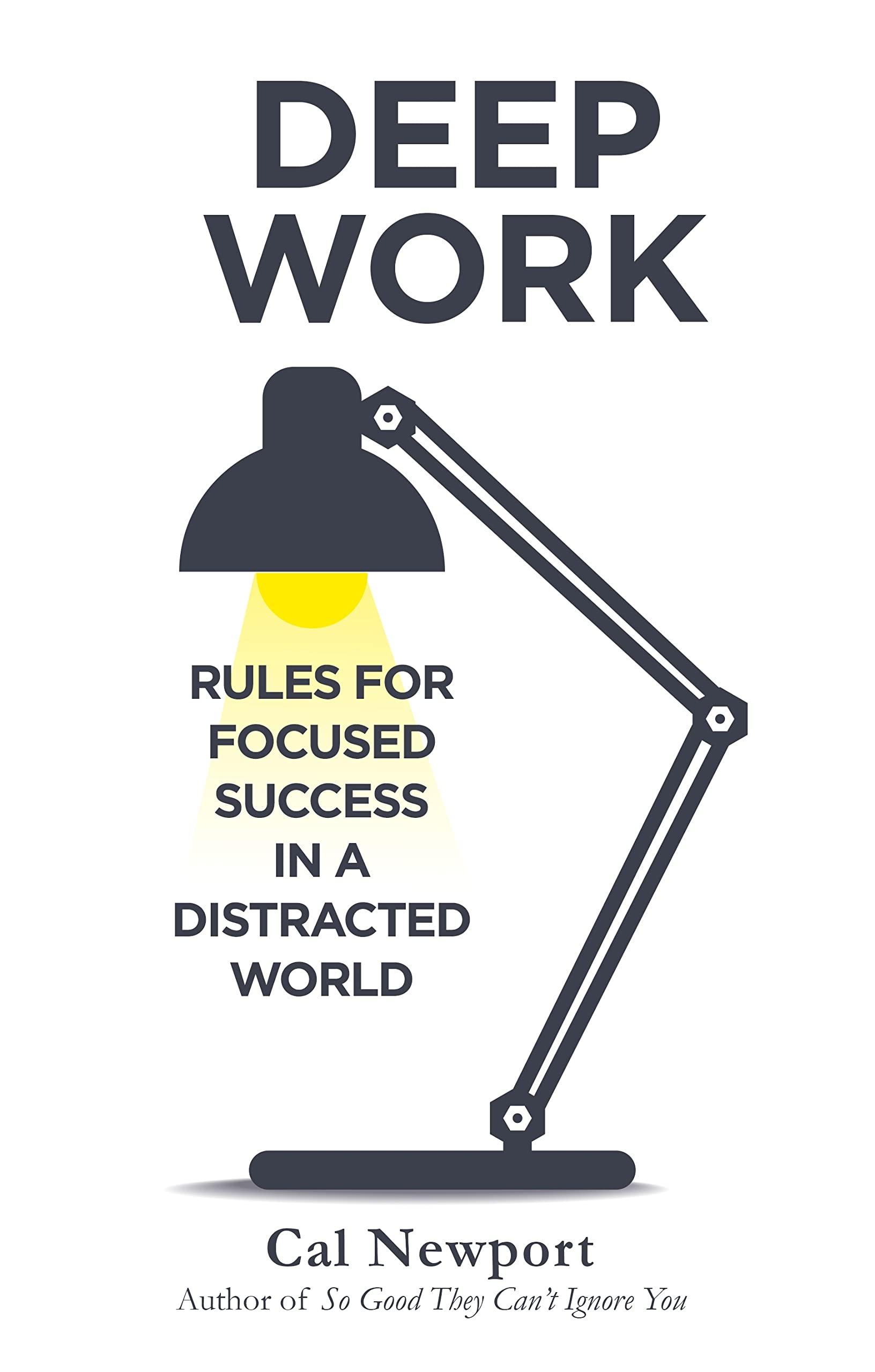
05 - Deep work - Rules for focused success in a distracted world, by Cal Newport.
Today’s society has become a never-ending stream of distractions and it is quickly getting worse. At the same time, more than ever, the most desired jobs are precisely the ones that require absolute concentration in order to solve difficult problems. In other words, we are pressured into achieving more and more, while also being distracted from those goals by the alluring call of social networks, instant messaging and basically unlimited entertainment available instantly, anywhere.
This is probably the most deceiving trap we have built for ourselves, and it takes extreme discipline and training to fight against it, but the rewards are much greater than you would think. The author is a good example of this. He has already published several successful books, has PhD from the MIT and is able to write research papers while still being a young college professor and father, all this without any overtime work.
There are a couple of points from this book that really resonated with me. First, is the attention that companies and managers pay towards “shallow work”. I.e. useless meetings, reading emails, sending instant messages and small talk. All these things are often considered more important that the work that they pay their employees to do, and the result is a lot of people trying to look busy, instead of actually being busy. The epitome of this is the horrendous idea of “open spaces”-Big empty rooms were hundreds or even thousands of employees are herded in a bad attempt to make them “collaborate”. I used to work in one of these I always hated it because is the worst possible environment to focus. Instead of collaboration, the result is small hubs of isolated teams that make their best to work despite the constant noise and visual stimuli, often unsuccessfully. This is yet another example of upper management unknowingly sacrificing productivity for the sake of appearing modern, and being too stubborn to realize they were wrong.
The other point I consider important is the analysis of social networks. We all know they are distracting, nobody has ever denied that, not even their creators. They do offer something: connecting people to share content or “give people the power to build community and bring the world closer together” as Facebook puts it. However, is this enough of a reason to keep using them? Is this “connection” (that supposedly we cannot get anywhere else) so good that our lives are supposed be put on hold with every new notification? I think it is better to do more impactful things. Let’s write a book instead of writing a thousand emoji-ridden instant messages. Let’s meet up with friends for meaningful conversation instead of pressing buttons to show we “liked” a funny image they copied from yet another social network. Let’s do deep work instead of browsing aimlessly.
Lastly, I want to clarify that this book is not a manual to be the perfect white collar worker. It is a guide to help you focus on the things that matter to you, regardless if it is a 9 to 5 job or something more personal and meaningful. I have been trying to follow this advice and, while it has been difficult, it is also one of the reasons why this year I read more books, among other achieved goals. For all these reasons, this is one of the best books I read this year.
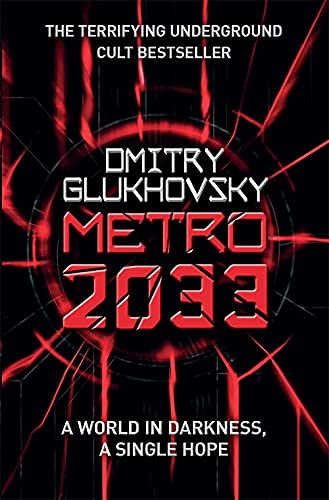
06 - Metro 2033, by Dmitri Glujovski.
Humans had always been better at killing than any other living thing.
Lord, what a splendid world we ruined…
Hunter had made this exchange with such ease, just as though he had sacrificed some minor chess figures to safeguard one of the most important pieces… He was just a player, and the metro was his chessboard, and all the figures were his, because he was playing the game with himself.
There’s only one thing that can save a man from madness and that’s uncertainty. The life of someone who has been sentenced to death is different from the life of a normal person in only one way: the one knows exactly when he will die, and the regular person is in the dark about it, and consequently it seem he can live forever.
As long as a man is alive, he will always deem himself to be the light of the world, and consider his enemies as the darkness.
Strange, but only having heard the savage’s howl, the full hopeless nostalgia for an absurd, fabricated divine being, he began to understand the universal feeling of solitude that fed mankind’s faith.
I started reading this book at a really bad moment. Just when Russia’s full-blown invasion began in Ukraine.
In Metro 2033, the world has been destroyed by nuclear war and some survivors protect themselves from the nuclear winter inside Moscow’s metro system.
Many different factions dwell in the metro stations. There are merchants, soldiers, revolutionaries, nazis and even Jehova’s witnesses.
Superstition, the everlasting companion of mankind, is still present in the dark tunnels of the metro. New religions arise and people are still deluded by them, specially thanks to the mysterious creatures that now rule the surface and attempt to infiltrate the dwindling safety of the metro stations.
I would recommend this book for the ending alone, but I do not want to spoil it here.
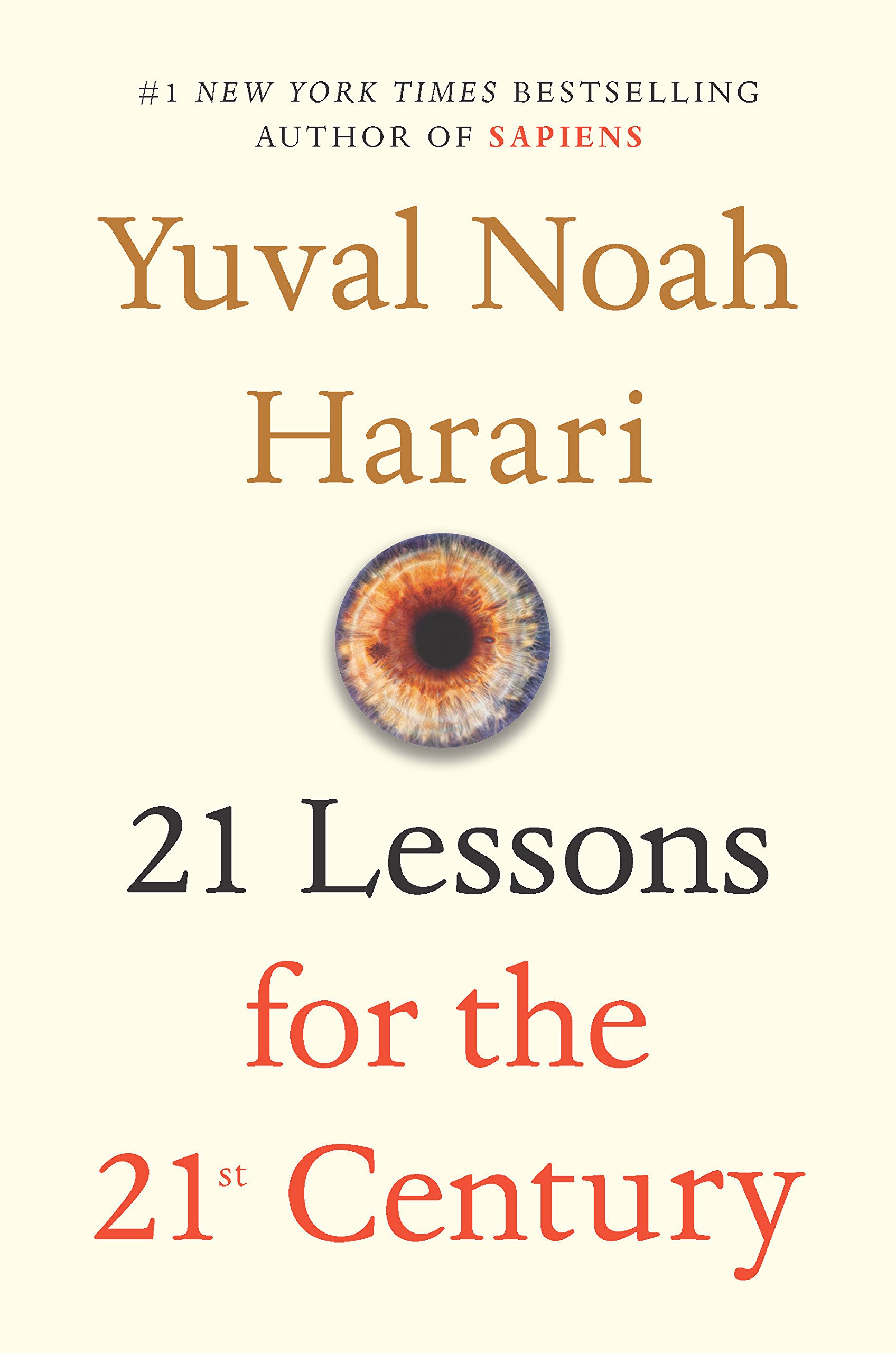
07 - 21 lessons for the 21st century, by Yuval Noah Harari.
Afters Homo Deus’ futuristic promises and Sapiens’ recollections of human history, this book offers an interesting portrayal of the current social landscape.
In his fascinating way of explaining things, Noah Harari discusses topics like the pros and cons of the different economic ideologies, as well as important topics like immigration, climate change, artificial intelligence, generic engineering, religion, fascism, education, war, etc.
While I greatly enjoyed the other two books, this one had a much more profound impact on me. We all are worried about the present and the near future, specially when words like “pandemic” and “war” appear daily in the news. This book offers a deep analysis of the current status quo and, as usual, does not pull any punches. So read it with a very open mind.
This is probably the best book I read this year.
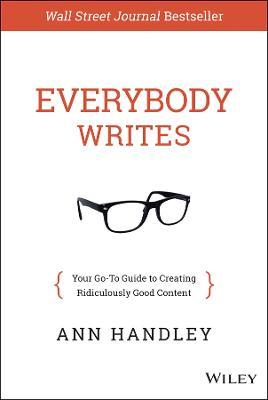
08 - Everybody writes: Your go-to guide to creating ridiculously good content by Ann Handley.
Mostly aimed at writing for marketing purposes, but there are some really good pointers here for any kind of articles. I was expecting something like the excellent On writing, by Stephen King but alas, I could only recommend this book if you were just hired as a writer by a marketing firm.
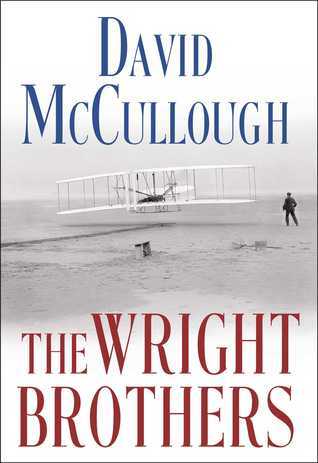
09 - The Wright brothers, by David McCullough.
No bird soars in a calm.
In the 1850s, one French inventor’s ingenious idea had consisted of a chair, a pair of wings attached to his back, and a huge umbrella. (Whether the umbrella was for “ascensional power” of shade was never explained.)
“In a like manner these two brothers have probably not even a faint glimpse of what their discovery is going to bring to the children of men.”
“I sometimes think that the desire to fly after fashion of birds is an ideal handed down to us by our ancestors who, in their grueling travels across trackless lands in prehistoric times, looked enviously on the birds soaring freely through space, at full speed, above all obstacles, on the infinite highway of the air.”
It crushes for another hundred years the suspicion that all of the secrets of nature have been solved or that the avenues of hope have been closed to those who would win new worlds.
“The best dividends on the labor invested have invariably come from seeking more knowledge rather than more power.” Signed Wilbur and Orville Wright, March 12, 1906.
From the most humble beginnings arose a team of unlikely heroes that changed the world forever. Truly a marvelous tale of underdogs.
This is by far one of the most inspiring books I’ve ever read. The Wright brothers gave the gift of flight to mankind, something that was yearned for millennia, and they accomplished that against all odds. They competed against tycoons from all over the world, and they managed to beat them spectacularly time and time again due to the power of teamwork, education, dedication, practice and the scientific method. Instead of just imitating the birds mindlessly, the Wright brothers studied, conjectured, tested and finally understood how to fly.
Nobody expected them to be the first. In fact, they were ridiculed, questioned and discouraged many times by people very close to them. People just could not believe that two poor brothers from a small town could have achieved something that was just a dream for some many people, for so long.
If you have ever been on a plane you absolutely must read this beautiful book and pay tribute to the two brothers that created a new era for mankind by finally realizing Icarus’ dream.
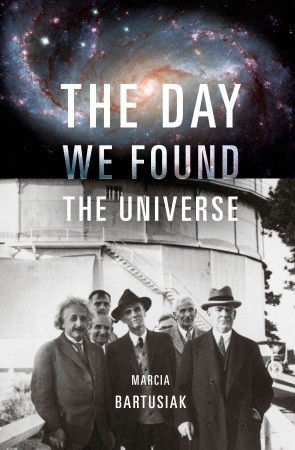
10 - The day we found the universe, by Marcia Bartusiak.
“The first man, away back in the later Pliocene, who knocked out a hairy elephant with his club, or saw his pretty reflection, or received a compliment, became suddenly conceited (it was a mutation) and there immediately evolved the first reflective thought in the world. It was: ‘I am the center of the Universe’. Whereupon he took himself a wife, transmitted this bigotry of his germplasm, and through hundreds of thousands of years the same thought without much attention has been our heritage.”
“Lights all askew in the heavens, men of science more or less agog over results of eclipse observations… Stars not where they seemed or were calculated to be, but nobody need worry,” blared The New York Times.
The year 1920 was one of achievements–Illustrious, infamous, resourceful, and humorous. American women got the vote, Joan of Arc was canonized by Pope Benedict XV, prohibition was initiated throughout the United States, an employee at the Johnson & Johnson company invented the Band-aid, and the U.S. Post Office ruled that children may not be sent by parcel post.
Luck certainly played a small role, but as Louis Pasteur once put it, “In the fields of observation, chance favors only the prepared mind.”
“There is more to the advance of science than new observations and new theories,” historian Norriss Hetherington has noted. “Ultimately, people must be persuaded.”
Milton Humason, who had barely finished the eighth grade before dropping out of school to work at Mount Wilson, received an honorary doctorate from Sweden’s Lund University in 1950 for his historic contributions to the discovery of the expanding universe, becoming that rare individual who went from elementary school directly to a PhD.
Just as inspiring as the Wright brothers book, this is the story of those astronomers who worked together to find the answers of the universe within its stars.
Great minds like Henrietta Leavit, Vesto Slipher, Georges Lemaître, James Keeler, Edwin Hubble, Milton Humason, George Hale, and even Albert Einstein collaborated (sometimes against their will) and finally shattered the self-centered cosmos that Galileo started cracking so long ago.
Most people still wanted to believe that we were the prodigal sons of the cosmos and deserved some privileged place in the universe. Maybe the Earth was not the center of the Solar system, but they still considered the Solar system as the center of the Milky Way, and also, the center of the entire universe. It took years and a lot of work, but thanks to all those astronomers and many more people, it was demonstrated that we must stay humble, because the universe is much larger and important that us.
It was refreshing to learn about the personal lives of those geniuses, including their imperfections. It was also bitter to read about the astronomers who descended into obscurity and never got the recognition they deserved.
By the own nature of astronomy, all these achievements will last for the longest time. Generations to come will still remember and admire all those astronomers who gave us so much knowledge, only using telescopes and their minds, passing their discoveries and the torch from one to another.
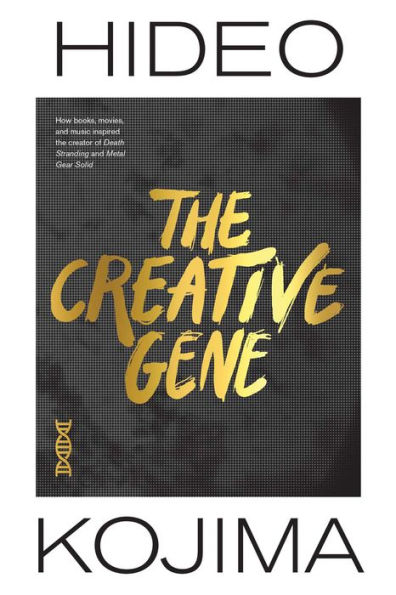
11 - The creative gene, by Hideo Kojima.
I hardly remember consuming anything other than science fiction–and yet I never suffered from malnutrition.
Twenty-five years ago, I incorporated a story and a message into videogames–two elements largely considered unnecessary. Now, with the sudden rise of mobile gaming, the trend is reversing.
And so, I did not feel like I had the physical kind of isolation, or that I was being conspicuously aloof. But inside me, the seeping sting of loneliness was always there. The feeling didn’t only come when I was alone. Even when I was having fun with friends, it was like a switch would flip, and the loneliness would push its way to the surface: isolation within a crowd. The more I surrounded myself with people, the stronger the loneliness became.
I read this book hoping it would be a detailed explanation of how Hideo Kojima came up with ideas for his acclaimed Metal Gear series. I was expecting something similar to Decoding greatness, the second book I read this year.
It is indeed a way to understand Kojima’s inspiration, but in a different way. This book is a compendium of reviews for the books, mangas, music and movies which Kojima considers the best and, in one way or another, have influenced him to create videogames.
This is not a life-changing book, but it is a great resource to find new interesting content and I know that I will read many of Kojima’s recommendations during the next year.